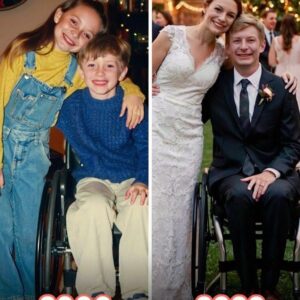My sister Darlene devoted nearly a decade of her life to caring for our mother, who battled chronic illness until her final days. She put everything on hold—her job, her relationships, her freedom—just to stay by Mom’s side. I, on the other hand, took a different path. I moved across the country, built a life with my husband Tobias, raised two children, and did my best to manage the chaos of everyday life. We visited when we could, but it was never enough. And yes, the guilt stayed with me.
Last week, Mom passed away peacefully in her sleep. I flew in for the funeral, overwhelmed by a mix of emotions—grief, regret, and, if I’m honest, a quiet relief that her suffering was finally over.
After the service, Darlene and I sat down to talk about Mom’s estate. That’s when everything unraveled.
She folded her arms across her chest and spoke with an edge I wasn’t prepared for.
“You’re not getting a dime, Corinne. Selfish daughters don’t deserve an inheritance.”
I stared at her in disbelief.
“Are you serious? We both lost her.”
“You left,” she snapped. “I stayed. I gave up everything. You think you can show up now and get a cut like you earned it?”
I tried to keep calm.
“Mom wanted us to share it. That’s what she always said.”
Darlene didn’t flinch.
“She changed the will. Six months ago. Everything goes to me.”
Sure enough, the lawyer confirmed it. The updated will was legal, valid, and very real. I felt blindsided—until something unexpected happened.
While staying at Mom’s house to sort through keepsakes and old photos, I found an envelope hidden behind her jewelry box. It was addressed to both of us, dated just two months before her passing. Her handwriting was shaky, but unmistakable.
“If anything happens to me,” she wrote, “please know this will isn’t what I truly wanted. I was pressured. I always wanted both my daughters to share everything equally. Please forgive me for not being stronger.”
I read the letter three times before I could move. Pressured? By who? I didn’t need to guess.
That evening, I laid the letter on the table in front of Darlene.
She looked at it, her face going pale.
“Where did you find that?” she whispered.
“Did you pressure Mom to change the will?” I asked.
Tears filled her eyes before the truth poured out.
“I didn’t mean to,” she said. “I was drowning. I maxed out my credit cards just keeping her alive. Insurance barely covered the basics. The house, the medicine, the nurses—it never ended. And you… you weren’t here.”
She wiped her face and continued, voice cracking.
“She offered to change it. I didn’t even ask. I let her. I was just so tired, Corinne. I couldn’t do it anymore.”
I sat there stunned, my anger clashing with heartbreak. I wanted to scream. I wanted to hold her.
“Why didn’t you tell me?” I asked.
“I didn’t want to seem weak. And deep down, I resented you for getting out.”
The room filled with silence—the kind that holds years of unsaid words. Finally, I reached across the table.
“I can’t change the past. And I know I should’ve been there more. But if we fight over this now, we’ll lose each other, too.”
She broke down again.
“I don’t want to lose you,” she whispered.
We went back to the lawyer the following week. Darlene chose to revise the will and split the estate equally. And then came another surprise—while reviewing Mom’s accounts, we found a small life insurance policy she never told us about. Just enough to pay off the debts Darlene had quietly taken on over the years.
It was like Mom had found one last way to care for both of us.
The money didn’t matter anymore. What mattered was the healing—two sisters slowly rebuilding trust, piece by piece. I had judged her for her silence, but now I saw the pain she had carried alone.
Sometimes, the real inheritance isn’t in the will. It’s the second chance to reconnect, to forgive, to rebuild what was broken before it’s too late.






